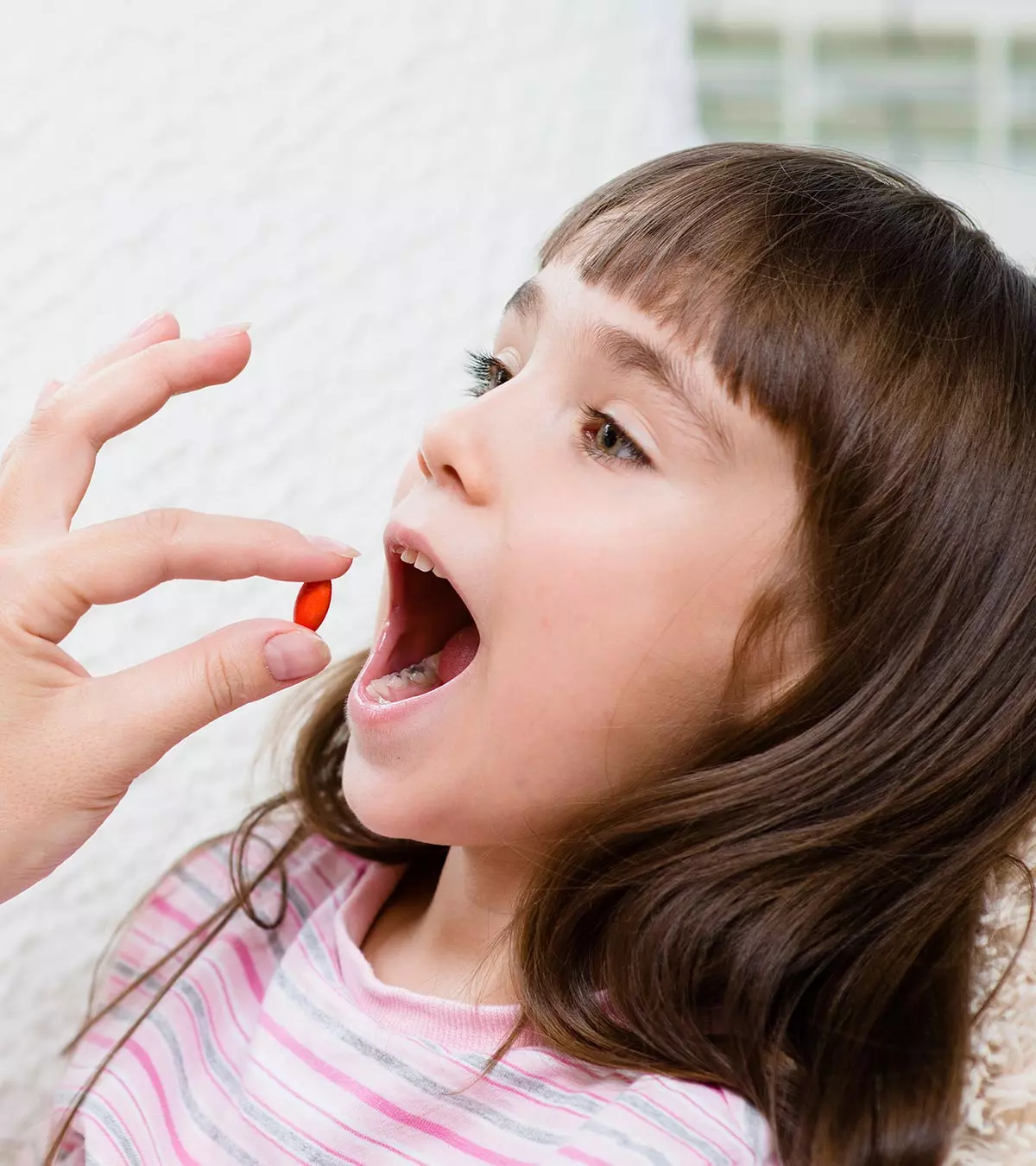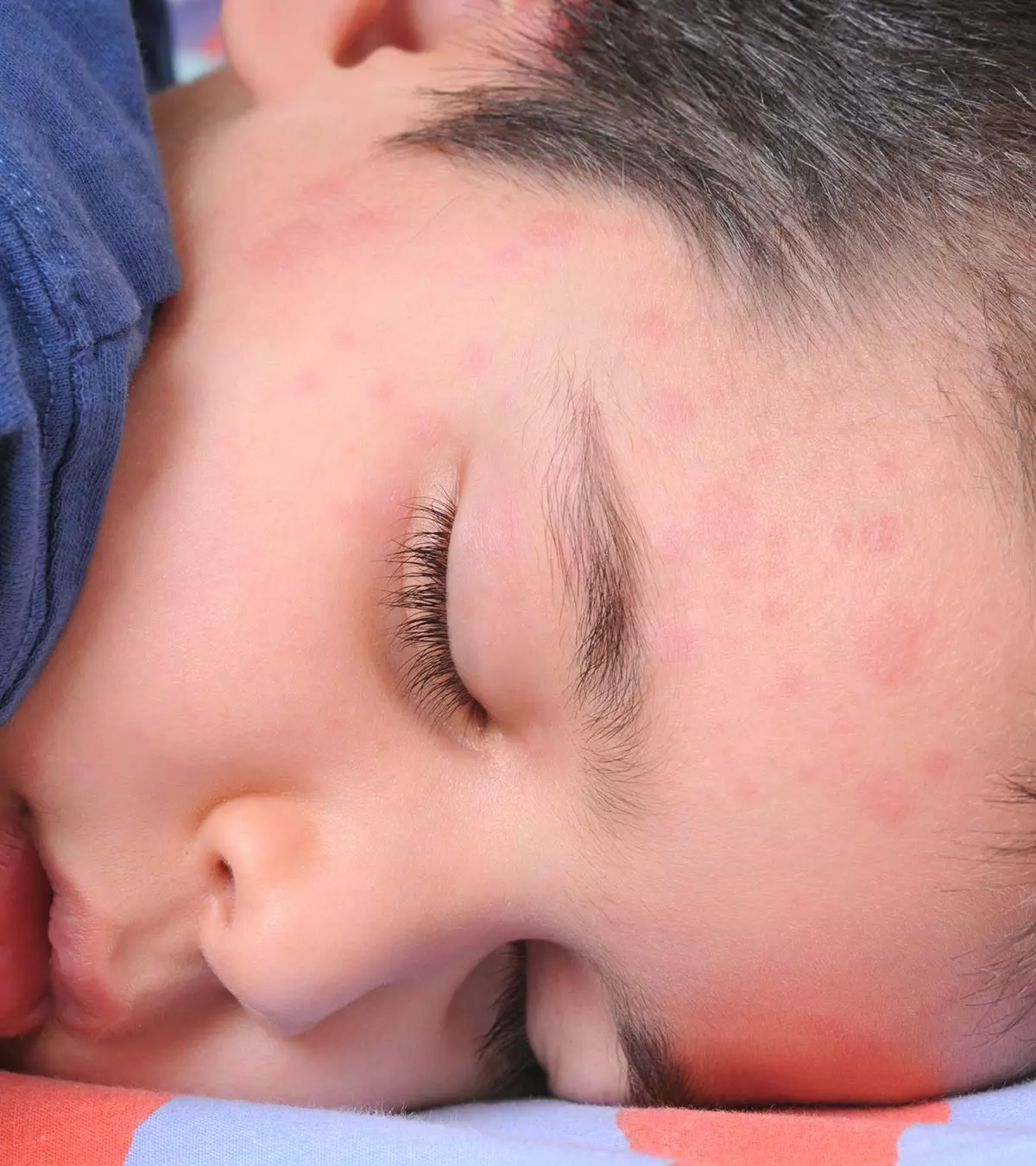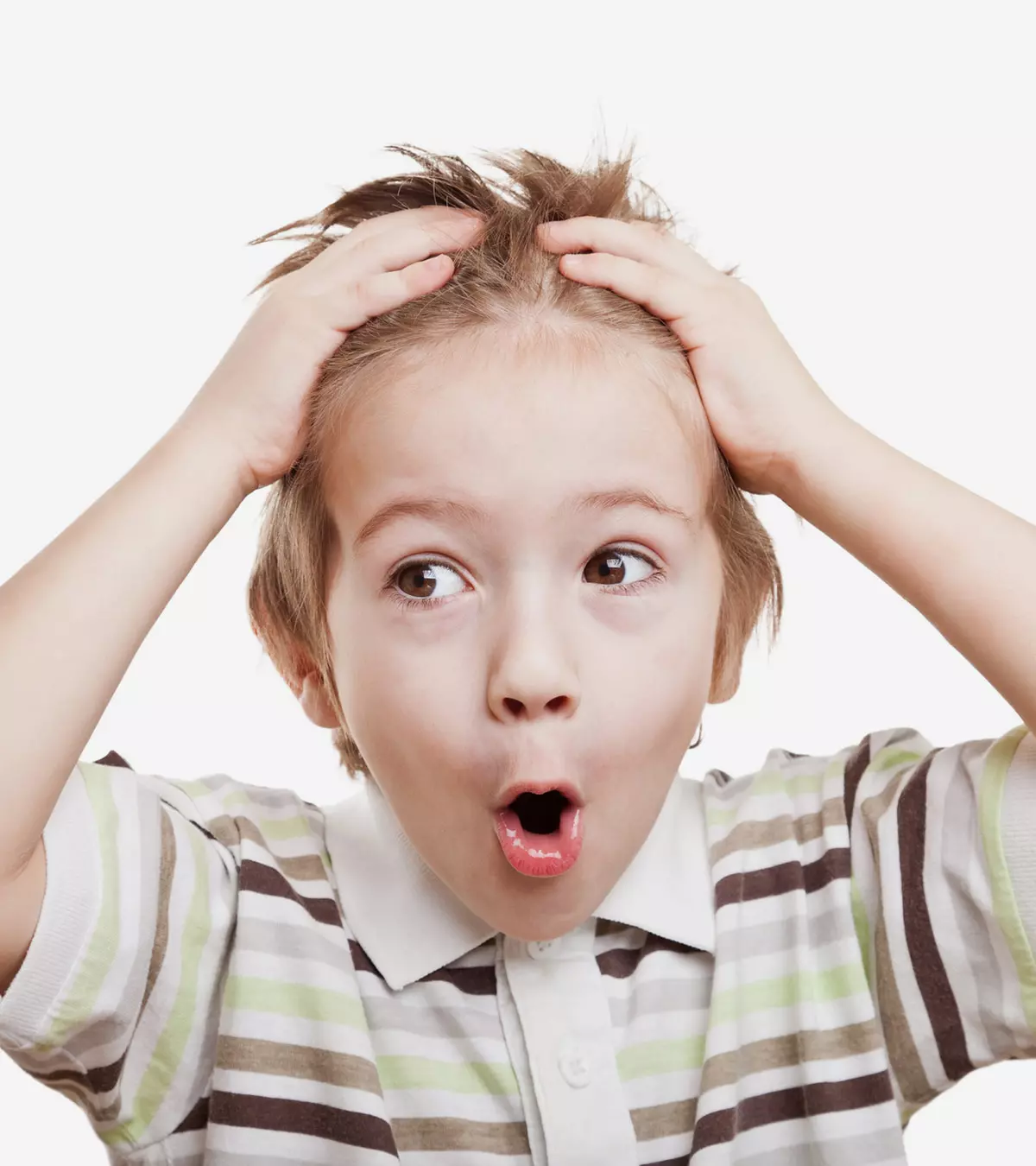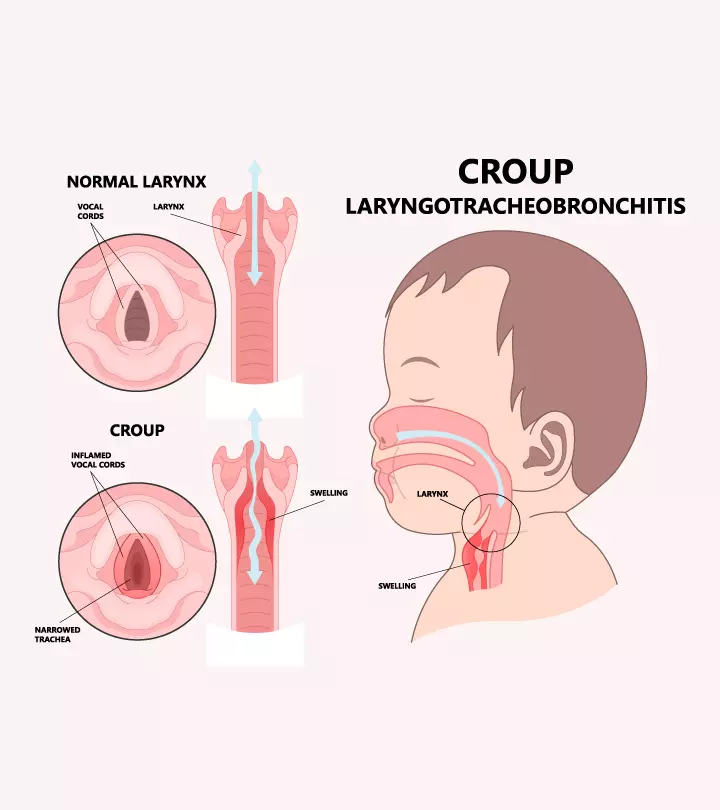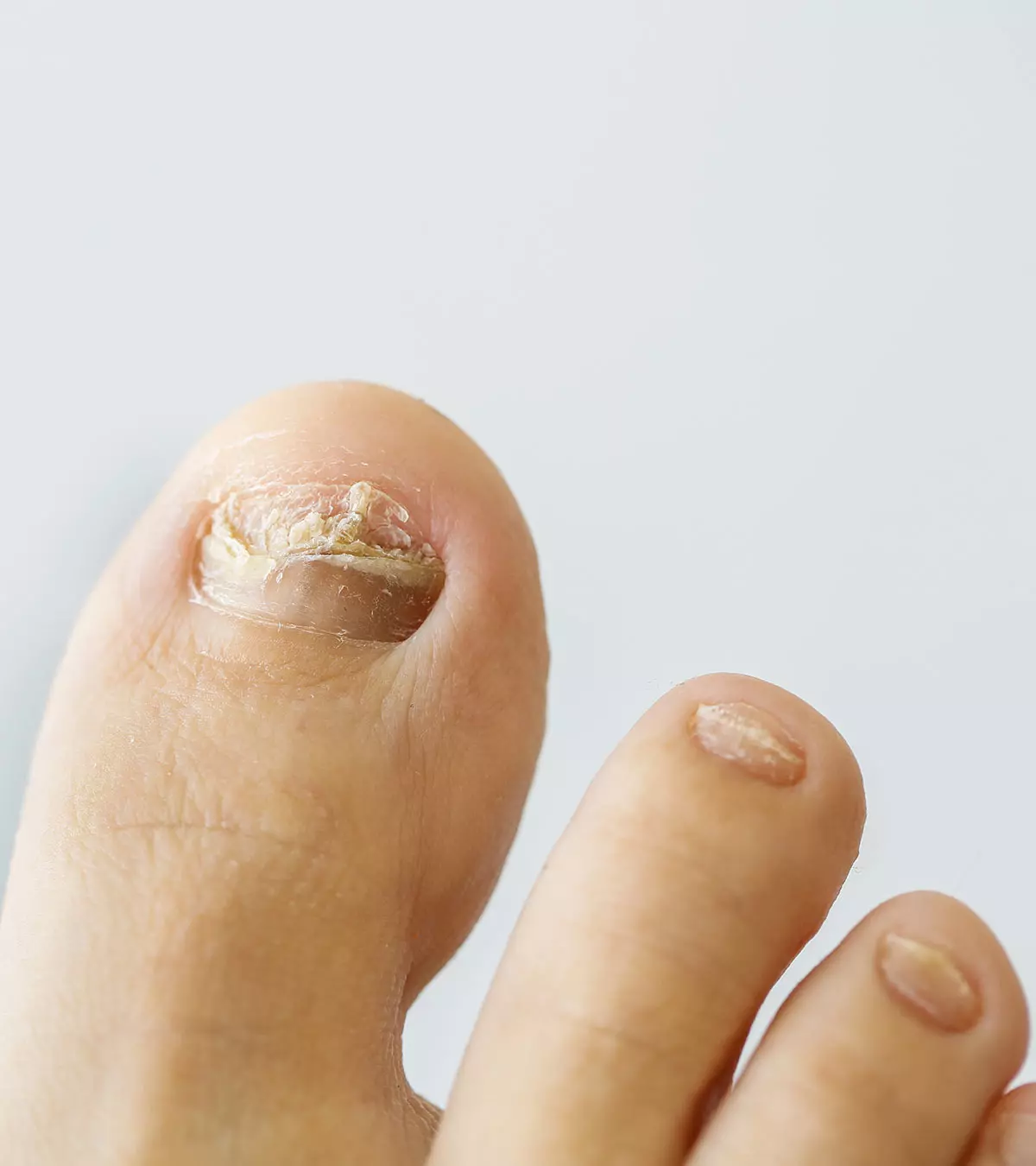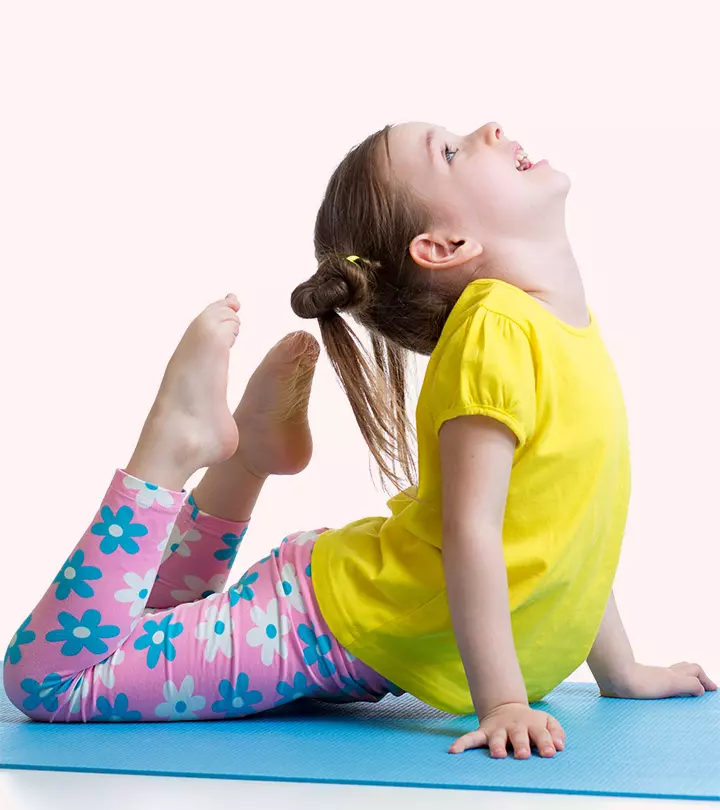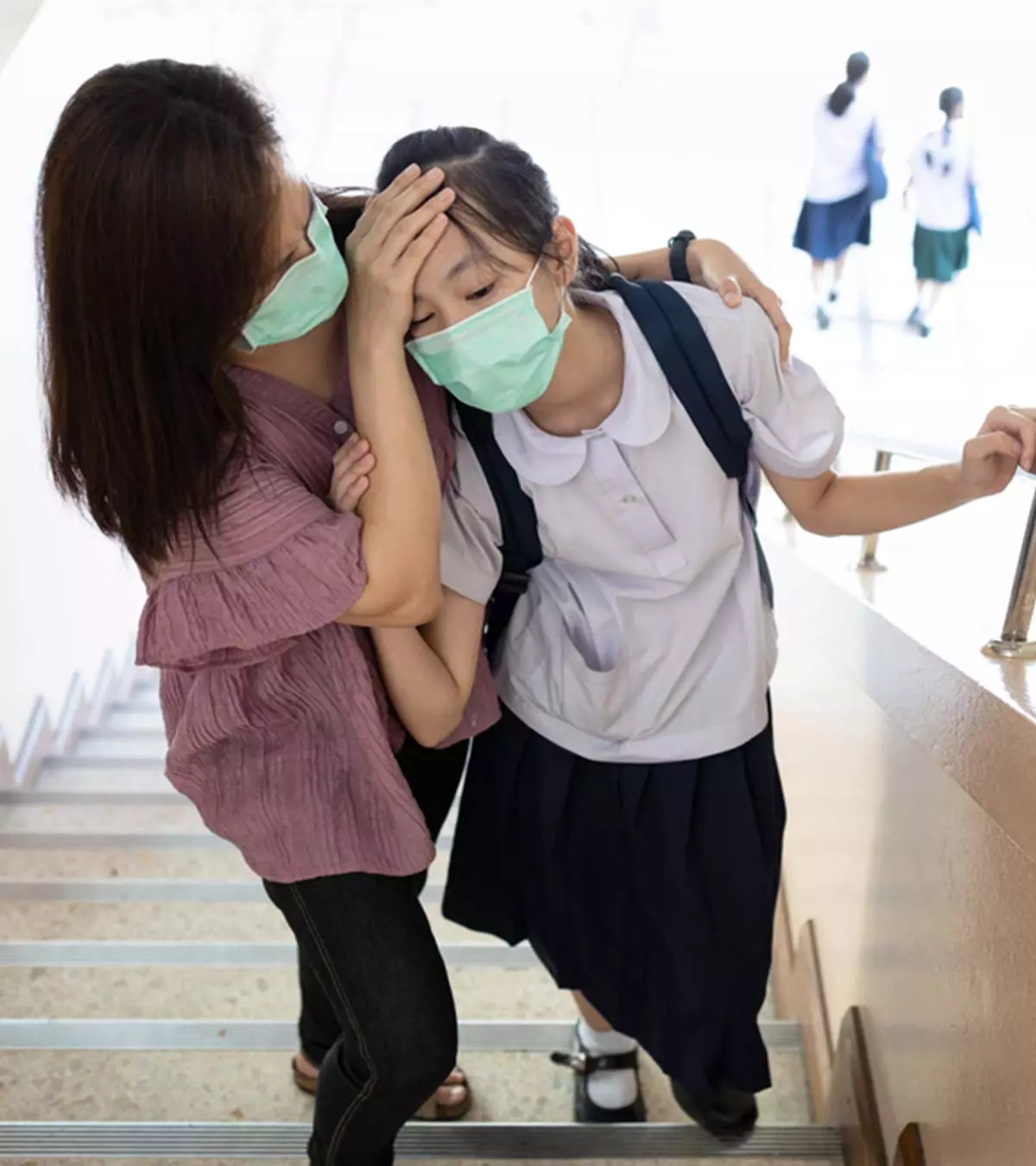
Image: Shutterstock
Dizziness in children can be due to diminished blood circulation to the brain for brief periods (1). They may explain feelings of faintness or lightheadedness when they are dizzy. In most cases, dizziness may not be accompanied by any obvious signs and symptoms of any illnesses. However, persistent dizziness can risk a child’s safety and well-being. Therefore, you may seek pediatric care to identify and treat the underlying causes of dizziness. Read this post to know the causes, symptoms, risk factors, complications, and treatment for dizziness in children.
Key Pointers
- Dizziness in children could be driven by various conditions such as infections, dehydration, and weakness.
- However, frequent dizziness could indicate a serious condition such as anemia or concussion.
- Your kid’s doctor may suggest evaluations based on the severity and cause.
- This condition is easily manageable with medications and home care.
Symptoms Of Dizziness In Children

The common symptoms of dizziness in children include (2) (3):
- Lightheadedness
- Balance problems, including loss of balance and a feeling of unsteadiness
- Inability to think clearly
- Blurred vision for a brief moment
- The feeling that the world around them is revolving
- Sudden feeling of extreme heat or cold, sometimes with sweating
- Pale or ashy skin tone
- Ringing or buzzing sound in the ears
- TachycardiaiA condition where your heart beats unusually fast
- Headache and nausea
- Twitching of muscles or jerks
Based on the severity, your child may experience mild, moderate, and severe dizziness.
In mild dizziness, the child may feel slight lightheadedness but can walk normally and perform their activities. In moderate dizziness, the child may feel weak, and the dizziness could affect their ability to stand and take part in activities such as walking and running. In severe dizziness, the child may not be able to stand, and the lightheadedness may worsen, making the child feel as though they are on the verge of fainting (1).
 Experts say
Experts sayCauses Of Dizziness In Children
Often, dizziness could be due to weakness, but sometimes, it can signal an underlying medical condition. Here are a few causes of dizziness in children.
1. Prolonged standing
Dizziness due to prolonged standing commonly affects children who have a slender build and reduced blood volume. When the child stands in the same position for longer periods, the blood tends to pool in the legs, slowing down blood supply to the brain. Often, the symptoms of dizziness may subside in 30-60 seconds, and the child may seem well and free of any symptoms if they remain upright or are held upright (4).
2. Orthostatic hypertension (OHT)
Orthostatic hypertension is a condition characterized by an increase in blood pressure when in an upright position. Studies suggest that OHT can increase the risk of hypertension in young adults. The common symptoms of OHT include dizziness, headache, chest tightness, chest pain, palpitationsiAbnormal heart rhythms often caused by stress, anxiety, or medical conditions. , and syncope (fainting or passing out). Sudden postural changes, prolonged standing, emotional stress, and a stuffy environment can trigger OHT (5).
3. Dehydration

Children may also feel dizzy when they are dehydrated. When there is excess water loss from the body, it can cause lightheadedness and syncope. Other signs of dehydration include dry lips, dry tongue, fatigue, muscle weakness, headache, and lethargy (6).
4. Ear infections
Conditions such as labyrinthitisiAn inner ear infection that may cause symptoms such as loss of hearing, dizziness, and vertigo. (problem inside the inner ear) and vestibular neuritis (inflammation of the vestibular nerve in the inner ear) can cause sudden dizziness in children. Ear disorders, such as Ménière’s disease, can lead to intense dizziness and a persistent ringing in the ears. Ear infections are often self limiting, but the doctor might prescribe antibiotics if there is any bacterial infection (7).
5. Anemia
It is a condition in which the blood does not have enough healthy red blood cells, resulting in reduced oxygen flow to the organs. Some common signs of anemia are dizziness, tiredness, fatigue, general body weakness, loss of appetite, pale skin, and low immunity (8). If your child often feels dizzy, it is important to get their hemoglobin levels checked.
6. Vestibular migraine
According to The Expert Review of Neurotherapeutics, the estimated total prevalence of pediatric migraine in the US is 10% (9). This could be caused by a hereditary condition, lack of sleep, dehydration, or allergy to certain foods. Although the exact cause is unknown, experts believe that it might be due to the constriction of blood vessels around the brain. Besides dizziness, vestibular migraine is characterized by motion sickness, vomiting, sensitivity to light, loss of balance, and nausea in children (10).
7. Benign paroxysmal vertigo of childhood (BPVC)
The cause for this condition is not known; however, it is thought to be a precursor to migraine at an older age. It is characterized by symptoms such as nystagmus (fluttering or abnormal eye movements), loss of balance, vomiting, pale appearance, sweating, and head tilt. It typically affects children aged 3-4 years, and most children outgrow these symptoms as they get older (11).
8. Hypoglycemia
Hypoglycemia or low blood glucose levels may also cause dizziness. For proper functioning of the brain, glucose is essential, as it is the primary source of energy. When blood sugar level drops below normal, the brain may not receive an adequate supply of glucose to function properly. This lack of fuel can lead to various symptoms, and dizziness is one of them (12). Children without diabetes may also experience hypoglycemia. Irregular eating patterns, delayed meals, or high physical activity without sufficient food intake are a few factors that cause the sugar levels in the body to drop.
9. Other causes
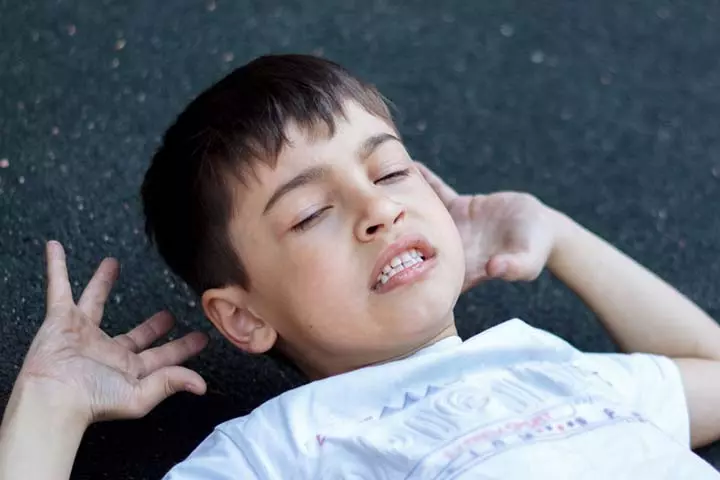
Dizziness in children can also be caused by a concussioniA severe injury that disrupts normal brain functioning, leading to symptoms including headache, dizziness, and loss of consciousness. , multiple sclerosisiA chronic autoimmune disorder affecting the central nervous system, leading to dizziness, fatigue, and loss of balance. , type 1 diabetesiAn autoimmune condition, in which the body fails to produce sufficient insulin, leading to high blood sugar levels. , juvenile arthritisiA chronic inflammatory condition affecting children, characterized by swelling, stiffness, and pain in the joints. , and usage of aspirin or other nonsteroidal anti-inflammatory drugs (13).
Motion sickness may also cause dizziness and vomiting in children (14). Speaking about how motion sickness (car sickness) contributed to her son’s dizziness and nausea, Liz, a mother, shares, “The first time it (the son’s puking) happened, my son was 18 months old, and I thought it had something to do with what he had had for lunch that day. The second time, I thought maybe the milk he drank was bad. The third time, while I was pulling over to start cleaning us all up again, it dawned on me. This was happening every time we drove out of our small town. Which meant any car ride over 20-25 minutes, which meant he was ‘carsick’ (i).”
 Things to know
Things to knowRisks And Complications Of Dizziness
Certain children are more prone to dizziness, particularly those who are malnourished or have a family history of autoimmune diseases. These factors can make them more vulnerable to balance issues and frequent dizzy spells.
A study assessing the national prevalence of dizziness and balance problems in U.S. children found that “Prevalence of dizziness and balance problems was 5.3% (3.3 million US children); females, 5.7%, males, 5.0%. Non-Hispanic white (6.1%) had increased prevalence compared with Hispanic (4.6%) and non-Hispanic black (4.3%) children. Prevalence increased with age, from 4.1% for children aged 3-5 years to 7.5% for children aged 15-17 years (15).” This suggests that dizziness becomes more common as children grow older, highlighting the need for early identification and management.
As dizziness is a symptom of an underlying problem, the complications depend on the severity of the underlying issue. Also, frequent episodes of dizziness may lead to fainting, which can cause injury and affect children’s well-being.
Diagnosis Of Frequent Dizziness

If your child often complains of dizziness, or if you spot the signs, it is best to seek medical advice. Your doctor would do a physical examination and take your family’s medical history to determine the underlying cause. They may also recommend tests such as audiometryiA test used to determine a person’s hearing ability. , vestibular function testsiA set of tests performed to determine a person’s hearing function and inner ear functioning. , electronystagmographyiA test that determines eye movements, used to assess the cause of certain conditions such as dizziness and vertigo. , blood tests, CT scans, and X-rays (16).
Treatment For Dizziness In Children

The treatment for dizziness depends on the underlying cause. Dizziness is often a self-limiting condition. However, if the dizziness persists, then it is best to seek medical advice. Here are a few ways to manage dizziness in children (13).
- Prescribing medications such as antibiotics, decongestant, or antihistaminesi in the case of ear infections.
- Administering antidepressants to alleviate migraine-related vertigo or dizziness.
- Anticholinergics may be used to alleviate nausea and motion sickness (17).
- Give your child an iron-rich diet if they are diagnosed with anemia.
Home Care For Dizziness In Children
In addition to medical treatments, certain home care measures can help manage and prevent dizziness. When your child feels dizzy, here’s what you can do at home:
- Asking the child to sit with their legs at an elevated position. This helps the blood to circulate to the brain.
- Giving them plenty of water and juices to replenish the lost body fluids.
- Don’t let them skip meals. Give them regular meals and snacks to keep their energy levels steady.
- Ensuring they shift their body weight from one leg to another or distribute the weight equally on both legs when they have to stand for long hours.
- Instructing your child to get up from the bed slowly and avoid sudden changes in position.
- If they start feeling dizzy, have them sit or lie down right away so they don’t fall.
- Make sure they get enough sleep, since being tired can make dizziness worse (18).
- Pay attention to anything that seems to cause their dizziness, like certain foods or activities, and help them avoid these things.
Frequently Asked Questions
1. How can I stop my child from being dizzy?
Encouraging them to drink plenty of fluid and water, especially during hot days, preventing them from overeating salt, nudging them to eat their meals and snacks regularly on time, and ensuring that they get enough sleep and rest are some ways that prevent your child from getting dizzy (1).
2. When should dizziness in my child make me worry?
If your child is experiencing severe dizziness, bleeding after fainting, has been complaining of severe headache, increased heartbeat is weak, or experiences disorientation and confusion before or after fainting, you should immediately take them to the emergency room. However, if your child has been experiencing mild dizziness, ear congestion, fever, or other symptoms, contact your doctor within 24 hours of fainting (1).
3. Is dizziness in children common?
Dizziness is less common in children than in adults (2). Moreover, some causes of dizziness may not be commonly seen in children. For example, severe dizziness or true vertigo due to middle ear disease is rare in children (19). However, a sensation spinning from standing up too quickly, dehydration, skipping meals, and being under the sun for a long period, that goes away is usually not a cause of concern (1).
4. How long could a bout of dizziness last in my child?
Spontaneous bouts of dizziness may last between 20 minutes to one hour (20). However, the duration may extend to two hours or several days based on the cause (19).
5. What are some causes of long-term dizziness in children?
Prolonged or severe dizziness and imbalance in children can stem from a range of causes, including vestibular neuritis, middle ear infections (otitis media), meningitis, motion sickness, central nervous tumors, vision problems, encephalitis, and movement disorders such as dystonia. Persistent dizziness may lead to difficulties with balance and coordination and affect physical activities like walking, sports, and play (20).
Dizziness, which could result in an unalarming condition, should not be ignored as it may also indicate an underlying condition such as OHT, anemia, or diabetes. If your child often feels dizzy, you must consult your child’s doctor for a timely diagnosis. Dizziness in children is first approached with an effective management technique followed by medications depending on the severity. In addition, staying aware of its causes and triggers can help cope with dizziness in children, while following some tips may help prevent it.
Infographic: Tips To Deal With Dizziness In Children At Home
Dizziness is usually harmless and may resolve on its own. However, persistent dizziness in children may require medical attention. Scroll through the infographic below to learn about some effective ways of managing the condition in children. However, if dizziness persists, contact your child’s pediatrician promptly.

Illustration: Momjunction Design Team
Illustration: Causes Of Dizziness In Children Care And Treatment

Image: Stable Diffusion/MomJunction Design Team
Dizziness and vertigo can be scary for children and adolescents. And the causes may vary for every child. Learn how to recognize the signs and symptoms and how to manage them.
Personal Experience: Source
MomJunction articles include first-hand experiences to provide you with better insights through real-life narratives. Here are the sources of personal accounts referenced in this article.
i. My clubhouse kid: Motion sickness;https://fitkidsclub.blogspot.com/2012/06/my-clubhouse-kid-motion-sickness.html
References
- Pediatric Dizziness.
https://www.childrensnational.org/get-care/health-library/dizziness - Dizziness and Fainting in Children and Teens.
https://www.healthychildren.org/English/health-issues/conditions/head-neck-nervous-system/Pages/Dizziness-and-Fainting-Spells.aspx - When Your Child Has Dizziness or Fainting.
https://www.saintlukeskc.org/health-library/when-your-child-has-dizziness-or-fainting - Julian M Stewart and Debbie Clarke; (2012); “He’s Dizzy when he Stands Up.” An Introduction to Initial orthostatic Hypotension.
https://pmc.ncbi.nlm.nih.gov/articles/PMC3029466/ - Yang Hu et.al; (2020); Orthostatic Hypertension in Children: An Update.
https://www.frontiersin.org/journals/pediatrics/articles/10.3389/fped.2020.00425/full - Naila A Shaheen et.al; (2018); Public knowledge of dehydration and fluid intake practices: variation by participants’ characteristics.
https://pmc.ncbi.nlm.nih.gov/articles/PMC6282244/ - Labyrinthitis.
https://www.mottchildren.org/health-library/hw265594 - Phyllis Atta Parbey et.al; (2019); Risk Factors of Anaemia among Children under Five Years in the Hohoe Municipality Ghana: A Case Control Study.
https://onlinelibrary.wiley.com/doi/10.1155/2019/2139717 - Rashmi Rao and Andrew D Hershey; (2020); An update on acute and preventive treatments for migraine in children and adolescents.
https://pubmed.ncbi.nlm.nih.gov/32700569/ - Thyra Langhagen et.al; (2015); Vestibular Migraine in Children and Adolescents: Clinical Findings and Laboratory Tests.
https://pmc.ncbi.nlm.nih.gov/articles/PMC4306301/ - Benign Paroxysmal Vertigo of Childhood (BPVC).
https://www.chop.edu/conditions-diseases/benign-paroxysmal-vertigo-childhood-bpvc#:~:text=Benign%20paroxysmal%20vertigo%20of%20childhood%20(BPVC)%20is%20a%20common%20cause - Your Brain and Diabetes.
https://www.cdc.gov/diabetes/diabetes-complications/effects-of-diabetes-brain.html - Vertigo (dizziness).
https://www.chop.edu/conditions-diseases/vertigo-dizziness - Motion Sickness.
https://my.clevelandclinic.org/health/diseases/12782-motion-sickness - Chuan-Ming Li et.al; (2016); Epidemiology of Dizziness and Balance Problems in Children in the United States: A Population-Based Study.
https://pubmed.ncbi.nlm.nih.gov/26826885/ - Tests For Diagnosing Vestibular Disorders.
https://vestibular.org/article/diagnosis-treatment/diagnosis/ - Anticholinergic Drugs.
https://my.clevelandclinic.org/health/treatments/anticholinergic-drugs - Sung Kyun Kim et.al; (2018); Relationship between sleep quality and dizziness.
https://pmc.ncbi.nlm.nih.gov/articles/PMC5841657/ - Dizziness.
https://www.seattlechildrens.org/conditions/a-z/dizziness/ - Kevin A Kerber; (2009); Vertigo and Dizziness in the Emergency Department.
https://pmc.ncbi.nlm.nih.gov/articles/PMC2676794/
Community Experiences
Join the conversation and become a part of our nurturing community! Share your stories, experiences, and insights to connect with fellow parents.
Read full bio of Dr. Misha Yajnik
Read full bio of Dr Bisny T. Joseph
Read full bio of Dr. Ritika Shah
Read full bio of Vidya Tadapatri







